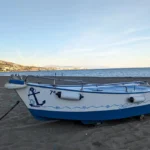Situated on Spain’s picturesque Costa del Sol, the charming town of Fuengirola is often celebrated for its sun-drenched beaches, vibrant nightlife, and welcoming atmosphere. While today Fuengirola thrives as a popular tourist destination, its history offers glimpses into the broader narratives that have shaped the region. In this article, we explore Fuengirola’s historical backdrop, including its experiences during the tumultuous period of the Spanish Civil War in the 1930s, and how these events have subtly influenced the town’s development.
As you traverse the sandy shores and lively streets of Fuengirola, you might find it intriguing to consider how historical currents have quietly passed through this coastal gem. Join us as we uncover the layers of Fuengirola’s past and appreciate the quiet resilience that underpins its modern-day charm.
The Historical Context: Fuengirola in the 1930s
The Spanish Civil War, spanning from 1936 to 1939, was a period of intense political and social upheaval that affected communities across Spain. Fuengirola, like many towns in Andalusia, experienced the ripples of this national conflict. While not a major battleground, the war’s impact on Fuengirola was felt through economic challenges and subtle shifts in the community.
In the early 1930s, Fuengirola was transitioning from a modest fishing village to a burgeoning town. The socio-political landscape of Spain during this era was charged, and Fuengirola was no exception. The tensions between Republicans and Nationalists created an undercurrent of uncertainty that permeated daily life, influencing local politics and community interactions.
Fuengirola During the Spanish Civil War
Although Fuengirola did not witness large-scale battles or significant military occupations, the town was not entirely insulated from the conflict. National tensions occasionally manifested in local disputes and economic difficulties. Businesses faced uncertainties as the national economy struggled, and families navigated the complexities of a country divided by ideology.
One notable aspect of Fuengirola during this time was the resilience of its residents. The community banded together to maintain a sense of normalcy amidst the broader national turmoil. While there were no major incidents of air raids or the establishment of concentration camps in the immediate vicinity, the pervasive atmosphere of fear and uncertainty influenced the town’s social fabric.

Lasting Impacts on Fuengirola
The echoes of the Spanish Civil War, though not as pronounced in Fuengirola as in other regions, contributed to the town’s character and resilience. The post-war period saw Fuengirola gradually rebuilding and adapting to the changing political and economic landscape of Spain. This era laid the groundwork for Fuengirola’s later transformation into a vibrant tourist hub.
Migration patterns in the latter half of the 20th century, driven more by economic opportunities and the allure of the Costa del Sol, played a significant role in shaping Fuengirola’s diverse population. The influx of expatriates and seasonal workers contributed to the town’s multicultural atmosphere, making it a unique blend of local traditions and international influences.
Many families in Fuengirola cherish stories passed down through generations, reflecting a collective memory of resilience and adaptation. These narratives enrich the local culture, offering residents and visitors alike a window into the town’s ability to navigate and thrive despite historical challenges.
Exploring Fuengirola’s Heritage
For those interested in history, Fuengirola offers several attractions that highlight its rich past and cultural evolution. Here are a few noteworthy places to visit:
- Castillo Sohail: Dating back to the 10th century, this castle has been a strategic military stronghold throughout its history. While its role during the Spanish Civil War was not prominent, Castillo Sohail remains a symbol of Fuengirola’s enduring legacy. Today, it offers stunning views of the coastline and hosts various cultural events and guided tours.
- Plaza de España: This central square, adorned with beautiful mosaic tiles, serves as a hub for community gatherings and cultural activities. It reflects the town’s dedication to preserving and celebrating its heritage, providing a lovely spot to relax and absorb the surrounding history.
- Fuengirola’s Historical Museum: This museum houses exhibitions that cover a broad spectrum of local history, including the town’s development over the centuries. While it touches upon the Spanish Civil War, the museum provides a comprehensive overview of Fuengirola’s journey through time, offering valuable insights into its cultural and social evolution.
The Importance of Remembering History
Understanding Fuengirola’s history, including its experiences during the Spanish Civil War, is essential in appreciating the town’s present-day identity. While Fuengirola may not have been at the epicenter of the conflict, the broader historical context contributes to a nuanced understanding of its development and community spirit.
Local institutions, schools, and community groups continue to honor and reflect upon the past, ensuring that the lessons and memories remain integral to Fuengirola’s cultural narrative. This commitment to remembrance fosters a sense of continuity and respect for the town’s heritage, enriching the experience for both residents and visitors.
Monument Honoring Victims of Conflict in Fuengirola
In July 2024, Fuengirola welcomed the addition of the Monument Memorial for All Victims of Wars, Genocides, and All Forms of Violent Atrocities in the Parque del Sol. This evocative sculpture, titled ‘El alma del mundo’ (The Soul of the World) and crafted by artist Tomás Castillo, serves as a heartfelt tribute to those who lost their lives to violence and human suffering. The monument stands as a serene space for reflection, inviting both residents and visitors to honor the memories of the past.
While the monument is not exclusively dedicated to the victims of the Spanish Civil War, it includes them among those who have suffered from various conflicts and atrocities. This inclusive tribute ensures that the sacrifices of Civil War victims are remembered alongside those of other communities affected by violence and injustice, highlighting Fuengirola’s commitment to honoring all who have endured such tragedies.
Mayor Ana Mula emphasized that the creation of this monument was a collective effort, responding to the voices of diverse social, ethnic, and international communities within Fuengirola. “Fuengirola is an open, cosmopolitan, and welcoming city. People from 135 nationalities live here in complete harmony. The people of Fuengirola are a magnificent example of coexistence among individuals from different countries, ethnicities, and traditions. Therefore, it was only right to create a space where we collectively declare that we are a tolerant, inclusive city that vehemently rejects violence,” stated Mayor Mula.
Visitors are encouraged to explore Parque del Sol to experience this meaningful addition to Fuengirola’s cultural landscape. The monument not only serves as a place of remembrance but also reinforces the town’s dedication to peace, tolerance, and the harmonious coexistence of its diverse population.
A Call to Explore and Engage
Whether you are a local historian or a casual traveler, we invite you to explore Fuengirola’s rich tapestry woven through centuries of history. Dive deep into the narratives of its past, discover hidden gems, and engage with the stories that make this town a remarkable place to visit. The next time you find yourself strolling along the stunning beaches or enjoying the local cuisine, take a moment to reflect on the journey Fuengirola has taken—a journey marked by resilience, adaptation, and a vibrant cultural spirit.
Don’t miss out on experiencing the blend of cultural influences and historical nuances that make Fuengirola an unforgettable destination!

